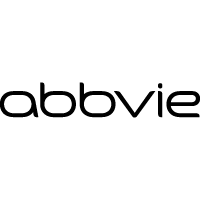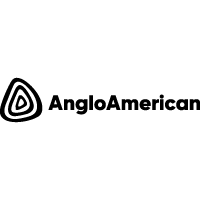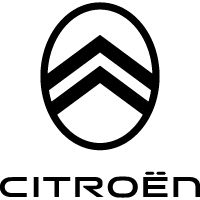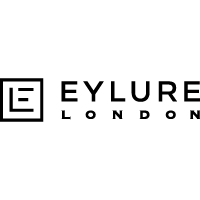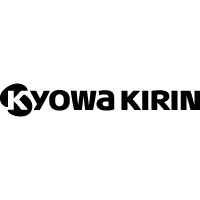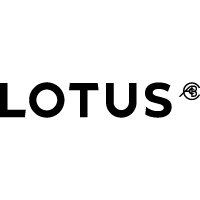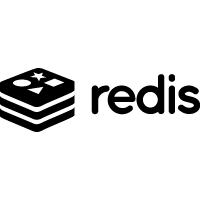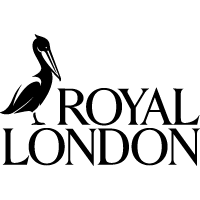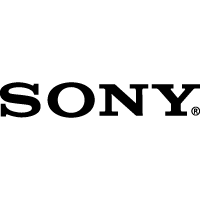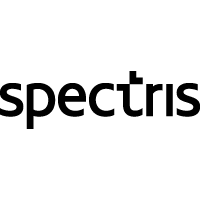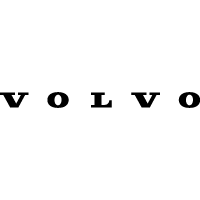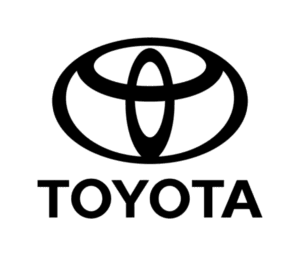2024 Event Tech Trends Unveiled at Strata’s Insight Event
Attendees at the Strata insights event, at The Ned in London last week, were treated to a preview of some of the most important tech trends which will shape the events industry in 2024 and beyond.
Speaking to an audience of event industry leaders, three key trends were showcased to help brands deliver greater results through events and marketing in 2024, by Chris Vernon-Smith, Creative Director of On Event Production Co (a subsidiary of Strata).
Tech Trend #1 – Personalisation
Opportunities now exist to personalise content to individuals dynamically, matching the mood and environment. Two examples were presented.
3D Audio Beam forming – such as the HOLOPLOT speakers used at ABBA Voyage. This beams highly directional sound to a specific audience or space. In a conference environment, the speaker could be translated into a different language instantaneously in different parts of the room.
Facial recognition – unobtrusive face recognition technology can gather attendee data with no need to scan badges or QR codes (this can be GDPR compliant). Room engagement could also be measured based on facial expressions meaning an event speaker could detect the mood of an audience through feedback from the tech, changing their energy or delivery accordingly.
Tech Trend #2 Sustainability
Two examples relevant to the events industry were presented.
PET eco-fabric – uses dye sub-printing and water-based inks to significantly reduce emissions compared to traditional print. For every roll of material that goes through the printers, 3,000 bottles are saved from ending up in the ocean or landfill.
Green mobile power – is now delivering the power output and duration to make it usable for large-scale outdoor events.
Tech Trend #3 Immersive Tech
Two ways in which immersive tech can transform event experiences were showcased.
LED film – improvements in LED resolution, power, and price point mean translucent screens on a massive scale can now add new dimensions to event spaces, product launches, and exhibitions.
The Vegas Sphere – mapped with LEDs and functioning as a giant video screen inside and out, produces video that dynamically changes throughout a show.
Giles Cattle, Director of Creative Strategy and Business Development at Strata said, “This was the third in our ‘Making Moments Matter’ Insight Series. First, we looked at globalisation, then we followed up with our Big Budget Debate. This time we gathered together experts, leaders, and visionaries to showcase the predictions and trend insights that will be shaping event brand and marketing in 2024 and beyond. It was an incredibly thought-provoking event and attendees went away inspired.”
Speakers and panel attendees also included Greg Clayton, Head of Markets, Brands and Shoppers Insights at Ipsos, Jen Bonassera, Global Events Director at Charlotte Tilbury, Kristian Cholmondeley, Managing Director at Jeep and Fiona Macnish, Head of Global Events at M&G Investments.
A full insights report from the event will be published in January and will be available on stratacreate.com.
To be the first to receive a copy, please click here.
A deep dive into shifting human behaviours within B2B and B2C markets, exploring how brands can leverage practical insights and trends to deliver greater results through events and marketing in 2024.
As we gear up to close the curtains on 2023, we’re thrilled to announce our final event of the year in the Making Moments Matter series. An exclusive, forward-thinking event that’s set to redefine the way we approach audience engagement and brand strategy in the coming year.
What’s in Store:
Join us for an immersive insights session that goes beyond the surface of trends and predictions. We’re bringing together industry leaders, visionaries, and experts to explore the practical applications that will elevate audience engagement for your organisation. It’s not just a discussion – it’s a hands-on experience designed to provide tangible takeaways.
Key Highlights:
Trend Spotting:
Discover the latest trends expected to shape the global marketing and events landscape in 2024.
Measurement and data:
What key metrics will be most in demand and how to leverage key data.
Technical innovations:
Understand what technical innovations and production techniques will be shaping events and used to enhance experiences
Industry Experts:
Hear from a range of industry experts, thought leaders, and innovators, who will share actionable insights for a successful year.
Future-Proofing Your Strategy:
Understand how to adapt and future-proof your event strategies to ensure sustained success in a fast-changing global environment.
Q&A Sessions:
The chance to ask the experts any burning questions you have about the challenges, expectations, and opportunities facing event leaders in the coming year.
Meet the Speakers:
Greg Clayton, Head of MBS Insights (Markets, Brands, and Shoppers) at Ipsos
Greg will give an exclusive look at the trends and insights that will shape your 2024 consumer, audience, and event strategy. You will come away with practical tools to enhance your 2024 results.
Kristian Cholmondeley, Managing Director of Jeep
Kris has an extensive 20 years of experience working across the automotive industry in sales and marketing roles for Peugeot, Citroen, Alfa Romeo, and most recently as Managing Director for Jeep. One of his missions is to eliminate the beige; Kris works to give brands a clear identity and communicate in a relevant and enriching way for the target audience. These communications then convert interest into successful, commercial, and sustainable results.
Jen Bonassera, Global Events Director at Charlotte Tilbury
With 15 years of experience shaping events for brands such as Burberry and Soho House, Jen’s expertise spans red carpet parties, runway shows, pop-ups, and VIP brand events worldwide.
Fiona Macnish, Head of Global Events at M&G Investments
With over ten years of experience in corporate events across both the energy industry and financial services, Fiona has managed a range of events in both the UK and Europe and now oversees a team of event professionals globally.
Why Attend:
Discover practical applications that can transform consumer and business audience engagement for your organisation. From cutting-edge insights to hands-on strategies, this event is your gateway to staying at the forefront of trends that will shape the global event landscape in 2024.
Secure Your Spot on the waiting list:
Don’t miss the chance to be part of this exclusive event. Its not too late to join the waiting list! Secure your spot today and position yourself ahead of the curve in the ever-evolving world of audience engagement and brand strategy.
In the realm of events, creating memorable experiences is paramount. Here at Strata, a brand experience agency, we not only understand this but we take it a step further by consistently delivering the added value our clients truly expect. Here we delve into how we are proud to be setting the bar high and reshaping the event landscape.
Personalisation Redefined
Our approach starts with a deep dive into each client’s vision and objectives. One size doesn’t fit all in the events world, and we know and embrace that. By tailoring every aspect of an event to align with the client’s brand, goals, and audience, we ensure a level of personalisation that leaves a lasting impact.
Innovative Concepts, Tailored Execution
Adding value isn’t just about meeting expectations; it’s about surpassing them. We thrive on pushing boundaries, introducing innovative event concepts that resonate with today’s dynamic audiences. From interactive tech elements to immersive themes, we blend creativity with meticulous planning to execute these ideas seamlessly for our clients.
Seamless Collaboration
We understand that a successful event hinges on a seamless partnership. The Strata team becomes an extension of the client’s vision, collaborating at every step to address concerns and find solutions. This collaboration doesn’t just create events; it cultivates relationships built on trust and shared success.
Beyond the Event
Strata’s commitment to added value extends beyond the event itself by providing post-event analysis and insights, helping clients gauge the event’s impact and gather valuable feedback for future endeavours. This holistic approach ensures a continuous cycle of improvement.
Insights as a value add
At the end of 2022, Strata instructed an independent relationship RADAR report.
Relationship RADAR® is an online assessment tool designed to help businesses with key B2B relationships identify and address issues, reducing risk and uncovering growth opportunities. It provides a comprehensive measure of relationship health, going beyond a simple propensity to recommend score.
Strata were thrilled to receive an overall radar score of 6.2 / 7 which is well above the RADAR standard of 5.5%.
One piece of feedback received from clients was a desire for insights. As a result of that, we have invested significantly this year in building an insights event programme allowing us to deliver more strategic content to our clients.
In a world where expectations are constantly evolving, Strata stands firm in its commitment to offering clients the added value they expect and deserve. Through personalised experiences, innovative concepts, and unwavering collaboration, Strata isn’t just shaping events; they’re shaping memories that resonate long after the final applause, making Every Moment Matter.
Last week our Sustainability Officer attended the second annual Conference News Sustainability Summit at 15 Hatfields.
It was empowering to be in a room with so many fellow event professionals passionate about sustainability. With a selection of panels many ‘hot topics’ were covered including sustainable catering, venues, event travel, and much more.
Besides networking with industry peers and engaging in knowledge-sharing, we walked away with five key takeaways that can serve as a valuable starting point for anyone looking to embark on their sustainability journey.
Data is king – measure your event carbon emissions
Measuring your event carbon emissions is essential to everyone, otherwise, how will you know if you’ve made a difference? Benchmarking your emissions against either your own events or industry examples such as the isla report will help you to understand how sustainable your event truly is.
Remember that although 80% of event emissions usually come from the attendee travel, we must not forget about the other 20%, so measuring your energy, waste, catering, and production is essential.
We use TRACE by isla for this which incorporates all areas of event emissions.
Sustainability is complicated
This was debated slightly, as it’s important planners don’t feel paralysed by a lack of knowledge on where to start. But it’s clear that designing a sustainable event or experience is not that straight-forward. Often something that looks sustainable isn’t actually the right solution so it’s important organisers do their research and due diligence to make the right decisions. Lean on your supply chain to be the experts in their field.
Lean on your supply chain
You cannot make your event sustainable on your own. You need to bring your supply chain (and clients of course), on the journey with you. You can be selective with your suppliers that are already making positive changes, but many – particularly small businesses – need support and guidance to adapt and become more sustainable. Working together and forming partnerships is the best way to tackle the global climate crisis together.
Offsetting is not the answer
With event travel usually being essential, this is a tricky area that some disagree on. But what’s clear is that offsetting is not going to be the solution to our problem. Reducing emissions is the priority and planting a tree today that will only sequester carbon in 35 years doesn’t really help.
That said, offsetting does offer other social and economic benefits and can often support the event’s legacy.
Comms are the solution
Ultimately attendees cannot be forced into something. That approach could negatively impact the event experience and detract from what most events are really about. So instead we should be communicating more sustainable options to attendees, and ‘nudging’ them towards the right choice.
Putting the most sustainable option at the top of a list, explaining why the menu is plant-based, and encouraging guests to bring their own reusable water bottles in advance are all simple things planners can do to bring their guests on the journey with them.
Sustainability is not just about the environment.
Environmental sustainability often hogs the stage at the moment due to the climate crisis. But the principles of People, planet, profit were repeatedly discussed. Bringing economic and social benefits to the table will improve your event legacy and truly make the event sustainable in every way possible. We discussed this more in a previous blog post The benefits of Sustainable Efficiency.
If you need support to make your events more sustainable then contact us today.
Mastering budget challenges in an era of global economic transformation
Join us at our next invite only insights event where Heads of Events, Marketing, Communications, and Procurement will converge to unravel the complexities of the global events landscape.
Embarking on a Journey of Discovery
The current global climate is marked by economic shifts, marketplace tensions, and a cloud of uncertainty. As budgets face the squeeze on a global scale, the demand for effective strategies, innovative solutions, and a keen ability to overcome budgetary obstacles has never been more pressing.
Keynote Insights from Industry Titans
The event is set to kick off with a keynote address that promises to provide unparalleled insights into the world of economics. The Head of Global Economics from Diageo will explore the economic currents shaping our event landscape.
A Collective Debate for Strategic Solutions
Engage in lively discussions that are designed to tap into the collective wisdom of industry leaders. As a participant, you will have the unique opportunity to dive into crowd-sourced challenges, dissecting them within small groups. These conversations will pave the way for innovative strategies and creative solutions.
Practical Wisdom from Panel Discussions
We will have panel discussions that bring together some of the most esteemed brands in the industry: Santander, Sky, and Stellantis. These industry giants will engage in a dynamic conversation about the practical solutions and answers they’ve discovered through their experiences.
Seize the opportunity to be part of an event that promises to reshape the way you approach event planning. With a diverse range of perspectives, insights from industry titans, and practical takeaways, this is an event that’s tailor-made for event professionals.
We would love you to join us – stratacreate-events.com/the-big-budget-debate/?utm_source=social
The automotive industry has always been at the forefront of innovation, and this extends to the way it engages with its audience through events. Over the years, automotive event experiences have evolved significantly, embracing technology, sustainability, and interactivity to captivate attendees and leave a lasting impact. As we look to the future, the automotive landscape presents exciting possibilities for even more immersive, connected, and sustainable event experiences.
Embracing Virtual and Hybrid Events
In the future, we can expect a continuation of this trend, with more automotive brands hosting virtual or hybrid events that combine the best of both physical and digital worlds. Virtual experiences provide a broader reach and accessibility, allowing automotive enthusiasts from around the globe to participate without geographic constraints.
Augmented Reality (AR) and Virtual Reality (VR) Integration
AR and VR technologies have the potential to revolutionise automotive events by creating highly immersive and interactive experiences. Brands can utilize AR/VR to showcase their latest vehicles, allowing attendees to explore every detail, even from the comfort of their homes. Additionally, AR can be used to gamify events, engaging participants in exciting virtual challenges and experiences.
Sustainable and Eco-Friendly Practices
With sustainability becoming a central focus for both businesses and consumers, the future of automotive events will embrace eco-friendly practices. Brands will prioritise sustainable event planning, such as using renewable energy sources, reducing waste, and incorporating eco-friendly materials. Additionally, the focus on electric and sustainable vehicles will play a significant role in shaping automotive events.
Personalisation and Customisation
The future of automotive events will be marked by personalised and tailored experiences. Brands will leverage data and analytics to understand attendees better, curating content and activities that align with individual interests and preferences. Personalised event experiences will enhance engagement and foster stronger connections between automotive brands and their target audience.
Interactive Test Drive Experiences
Test drives are an essential part of the automotive event experience. In the future, we can expect to see more interactive and innovative test drive setups, incorporating advanced driving simulators and immersive environments. This allows potential customers to experience the thrill of driving without leaving the event space.
Live Streaming and Social Media Engagement
The power of social media in automotive events will continue to grow. Live streaming of events on various platforms will enable brands to reach a wider audience and create buzz around their latest offerings. Social media engagement will play a crucial role in building anticipation and fostering a sense of community among attendees.
The future of automotive event experiences is an exciting blend of technology, sustainability, and personalised interactions. With innovation as its driving force, the automotive industry is set to redefine event experiences, leaving a profound impact on enthusiasts and customers alike.
In the ever-evolving landscape of marketing, businesses continuously seek innovative ways to engage with their target audience. Pop-ups and event marketing have emerged as powerful strategies to create memorable experiences and build brand loyalty. However, like any marketing approach, there are certain do’s and don’ts that can determine the success or failure of these endeavors.
The Do’s
Define Clear Objectives: Before diving into any pop-up or event, define specific and measurable objectives. Are you aiming to boost brand awareness, launch a new product, or build customer loyalty? Clear goals will guide your entire marketing strategy.
Know Your Target Audience: Understanding your audience is crucial for creating an appealing event. Research their preferences, interests, and pain points to tailor your event to their needs.
Choose the Perfect Location: Location is key to a successful pop-up or event. Pick a spot with high foot traffic, aligning with your target demographic. Consider co-hosting with other complementary brands to amplify exposure.
Create a Memorable Experience: Offer an immersive and interactive experience to captivate attendees. Utilise technology, storytelling, and sensory elements that resonate with your brand image and message.
Promote Effectively: Leverage multiple marketing channels to generate buzz before the event. Utilise social media, email marketing, influencer partnerships, and local advertising to create anticipation and attract a larger crowd.
Capture Data and Feedback: Use the event as an opportunity to collect data and feedback from attendees. Gather email addresses, conduct surveys, and encourage social media sharing to expand your customer insights.
Follow Up Post-Event: Don’t let the momentum fade away after the event. Send personalised thank-you emails to attendees and continue engaging with them through follow-up marketing campaigns.
The Don’ts
Overwhelming Attendees: Avoid overwhelming your guests with too much information, excessive marketing materials, or pushy sales tactics. Keep the experience enjoyable and light-hearted.
Neglecting Brand Consistency: Ensure your event aligns seamlessly with your brand identity and messaging. Consistency is key to reinforcing brand recall and trust.
Ignoring Logistics: Poor planning and execution can tarnish the entire event. Have contingency plans, manage queues efficiently, and ensure staff is well-trained and knowledgeable about your brand.
Overlooking Permits and Regulations: Failing to secure necessary permits and adhering to local regulations can lead to legal troubles and jeopardise your event’s success.
Forgetting Social Media Interaction: Encourage attendees to share their experiences on social media by creating shareable moments or organising photo contests. Social media engagement can amplify your event’s reach.
Neglecting Accessibility: Ensure your event is accessible to all, including people with disabilities. Pay attention to wheelchair access, interpreters for the hearing impaired, and any other accommodations that might be needed.
Leaving Sustainability Behind: In this environmentally conscious age, incorporate sustainable practices into your event planning. Minimise waste, use eco-friendly materials, and consider supporting a charitable cause.
Underestimating Post-Event Follow-Up: The work doesn’t end when the event does. Analyse event data, assess its impact on your objectives, and use these insights to improve future marketing strategies.
Pop-ups and event marketing are potent tools for creating memorable brand experiences and forging lasting connections with your target audience. By adhering to the do’s and avoiding the don’ts, you can ensure your events are successful, leaving a positive and lasting impression on attendees, and driving significant results for your business. Remember, thoughtful planning, creativity, and genuine engagement are the pillars of effective pop-ups and event marketing.
In the wake of the COVID-19 pandemic, the world witnessed an unprecedented transformation in the events industry. With physical gatherings becoming unsafe, businesses, organisations, and individuals turned to virtual events as an alternative means of connecting and engaging with their audiences. While initially perceived as a temporary solution, virtual events have now firmly secured their place in the post-pandemic world. In this blog, we will explore the reasons behind the enduring popularity and success of virtual events and how they have revolutionised the way we host and participate in gatherings.
Accessibility and Inclusivity
One of the most significant advantages of virtual events is their ability to transcend geographical barriers and reach a global audience. Prior to the pandemic, attending conferences, seminars, or trade shows often required significant travel expenses and time commitments. With virtual events, anyone with an internet connection can participate, eliminating travel costs and making these events accessible to individuals from diverse backgrounds and locations. This increased accessibility has led to greater inclusivity, allowing marginalised groups and individuals with physical disabilities to participate fully and benefit from these gatherings.
Cost-Effectiveness
Hosting and attending physical events can be costly for both organisers and participants. Venue rentals, travel expenses, accommodation, and other associated costs can quickly add up. In contrast, virtual events significantly reduce these expenses. Organisations can invest in top-notch virtual event platforms without the need for physical infrastructure. Similarly, attendees save money on travel, accommodation, and other expenses. This cost-effectiveness has made virtual events an attractive option for businesses, leading to increased adoption even after the pandemic.
Environmental Impact
Virtual events contribute positively to environmental sustainability by significantly reducing carbon footprints. The traditional events industry often generates considerable waste, energy consumption, and greenhouse gas emissions. By opting for virtual events, we reduce the need for transportation, minimise paper usage, and lower energy consumption. As environmental consciousness grows among businesses and consumers alike, virtual events are seen as a more eco-friendly alternative, further cementing their place in the post-pandemic landscape.
Flexibility and Hybrid Options
The pandemic taught us the value of adaptability, and virtual events proved to be a flexible and resilient solution. Even as physical events return, the hybrid event model has emerged, combining the best of both worlds. Hybrid events enable organisers to cater to both in-person and virtual attendees, offering a seamless experience for all participants. This model allows for greater event reach, more diverse programming, and the potential for increased revenue streams. As a result, hybrid events are set to play a key role in the future of event planning.
The COVID-19 pandemic undoubtedly accelerated the adoption of virtual events. However, their enduring success post-pandemic can be attributed to their unique advantages and the positive impact they bring. From increased accessibility and inclusivity to cost-effectiveness, environmental benefits, and the flexibility of hybrid options, virtual events have secured their place in the events industry. As technology continues to evolve and audience preferences shift, we can expect virtual events to remain an integral part of our lives, transforming the way we connect, engage, and learn in the digital age, making Every Moment Matter.
In a world saturated with marketing messages, creating a meaningful and lasting connection with consumers is a constant challenge for brands. Today, more than ever, businesses are turning to brand experience agencies to help them stand out from the competition and forge deep connections with their target audience, making Every Moment Matter. In this blog post, we explore how Strata, a leading brand experience agency, can help take your brand to the next level through the power of brand experience.
Understanding Your Brand Essence
One of the fundamental steps in creating a successful brand experience is understanding the essence of your brand. Strata works closely with your brand, taking the time to truly understand its values, personality, and unique selling proposition. By delving deep into your brand’s DNA, Strata can help create a cohesive and authentic brand experience that resonates with your target audience. This thorough understanding ensures that every touch point reflects your brand’s core identity, creating a consistent and compelling experience.
Crafting Immersive Experiences
Strata specialises in creating immersive experiences that captivate and engage audiences. Through careful design, innovative technology, and attention to detail, they transform ordinary spaces into extraordinary brand destinations. From pop-up activations and interactive installations to experiential events and retail environments, Strata leverages creativity and expertise to craft immersive experiences that leave a lasting impression on consumers. By engaging multiple senses and creating a sense of wonder, Strata helps your brand make a memorable impact.
Seamless Integration of Digital and Physical
In today’s digital age, successful brands must seamlessly integrate their online and offline presence. Strata understands the importance of this convergence and leverages technology to create immersive experiences that bridge the gap between the digital and physical worlds. Whether it’s incorporating interactive digital elements, leveraging augmented reality, or creating social media-worthy moments, Strata ensures that your brand experience is cohesive across all channels. This integration not only enhances customer engagement but also drives brand awareness and advocacy.
Driving Emotional Connections
Brand experiences have the power to evoke emotions and create lasting connections with consumers. Strata focuses on designing experiences that tap into the emotional aspects of your brand, forging deep and meaningful connections with your target audience. By creating experiences that resonate with consumers on an emotional level, Strata helps build brand loyalty, advocacy, and long-term relationships. These emotional connections go beyond transactional interactions, transforming customers into brand ambassadors.
Measuring and Optimising Success
Strata believes in the power of data-driven insights to measure the success of brand experiences and drive continuous improvement. Through robust analytics and measurement tools, we gather valuable data on consumer engagement, behaviour, and sentiment. This data allows us to refine and optimise brand experiences, ensuring that each activation delivers maximum impact. Strata’s commitment to ongoing evaluation and improvement ensures that your brand stays relevant and continues to evolve in a rapidly changing marketplace.
In today’s competitive landscape, harnessing the power of brand experience is essential for brands looking to make a lasting impact on consumers. Strata, with its expertise in understanding brand essence, crafting immersive experiences, integrating digital and physical realms, driving emotional connections, and measuring success, is poised to take your brand to new heights. By partnering with Strata, you can unlock the full potential of brand experience and create meaningful connections that drive brand loyalty, advocacy, and growth. It’s time to elevate your brand with Strata and unleash the power of brand experience.
Proud to deliver lasting moments for...
Let’s have
a chat!
Every brand touchpoint is a moment that matters. A chance to strengthen your message with clarity and relevance. To make your audience feel like they're part of something extraordinary, get in touch.


